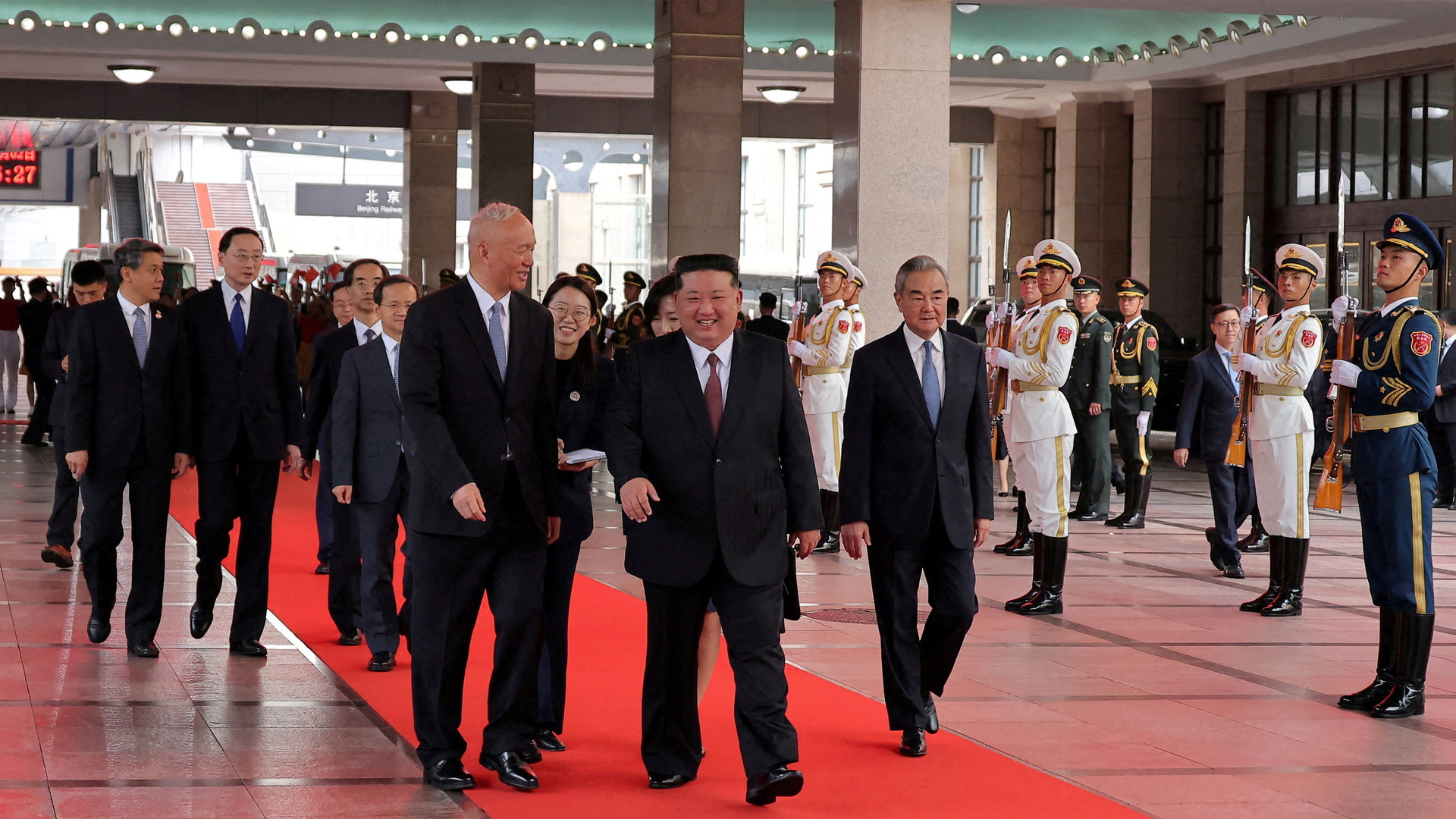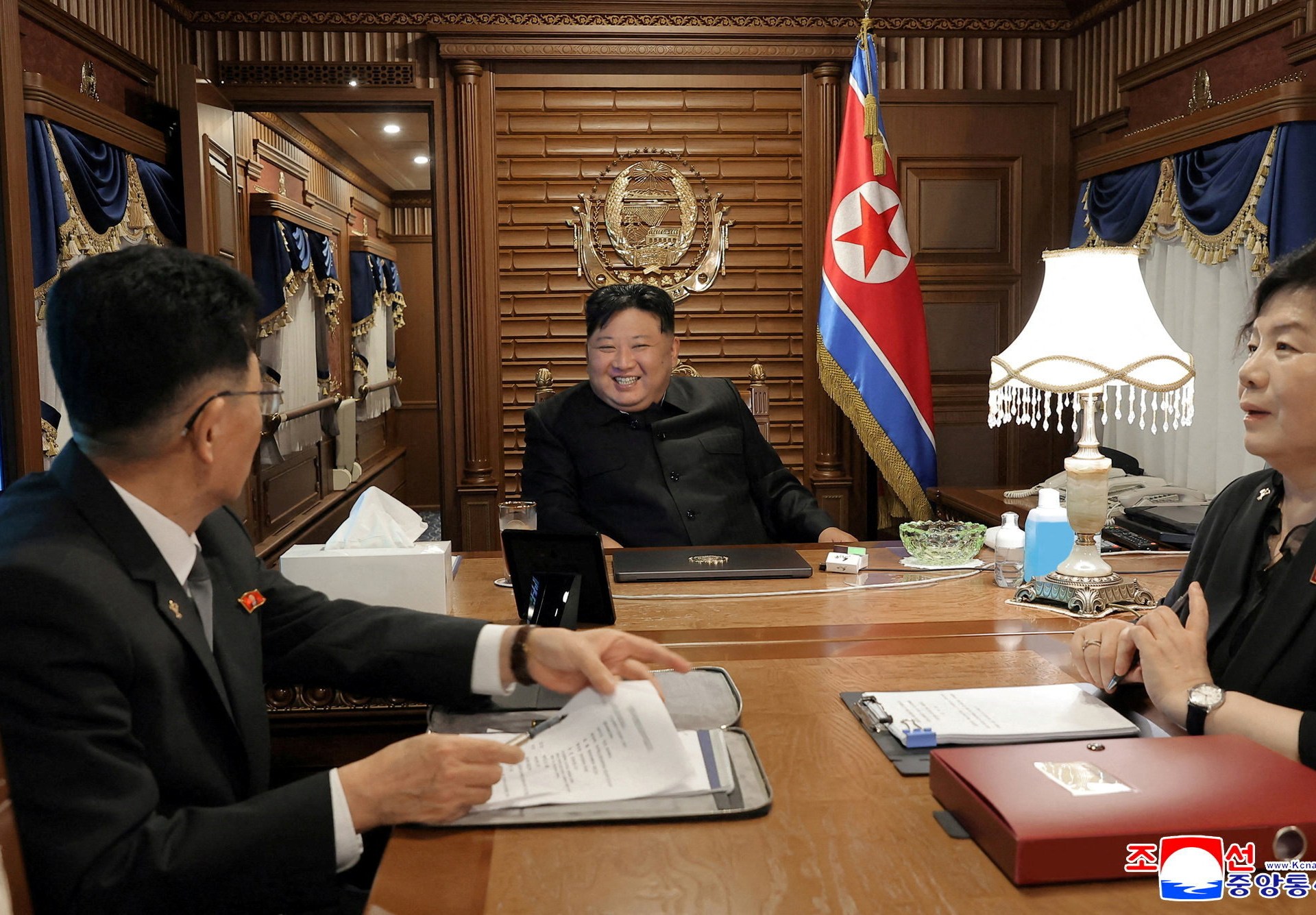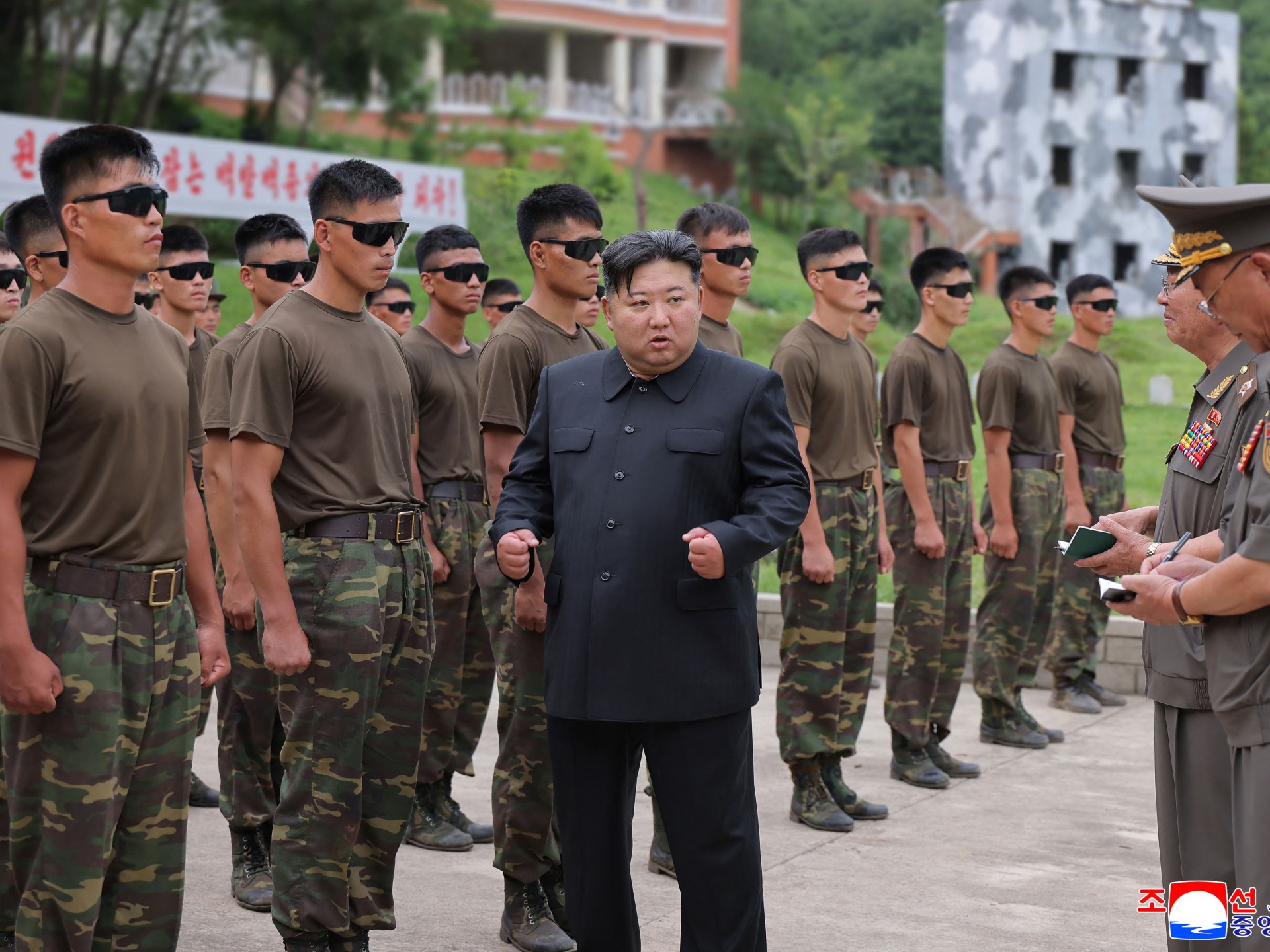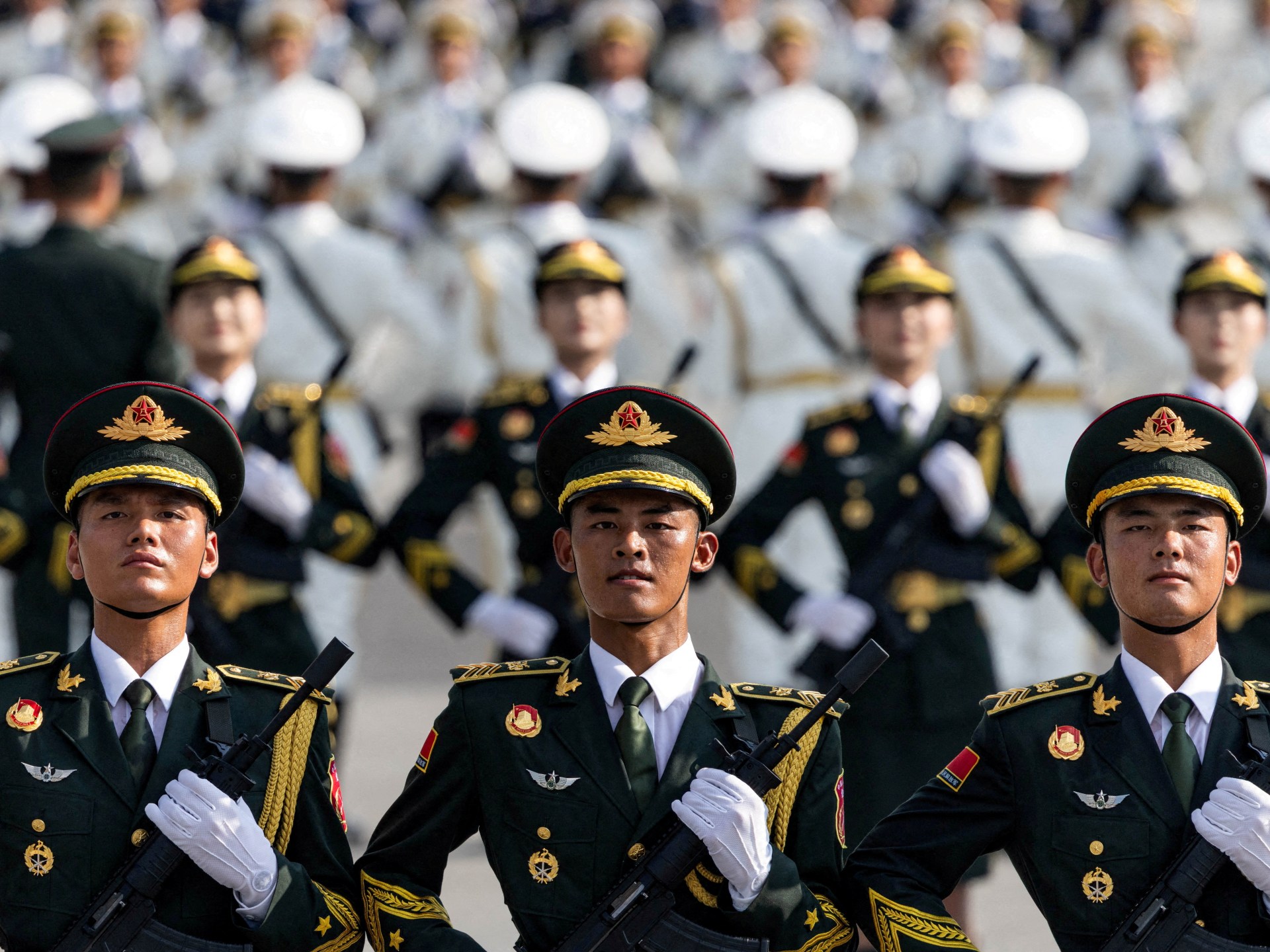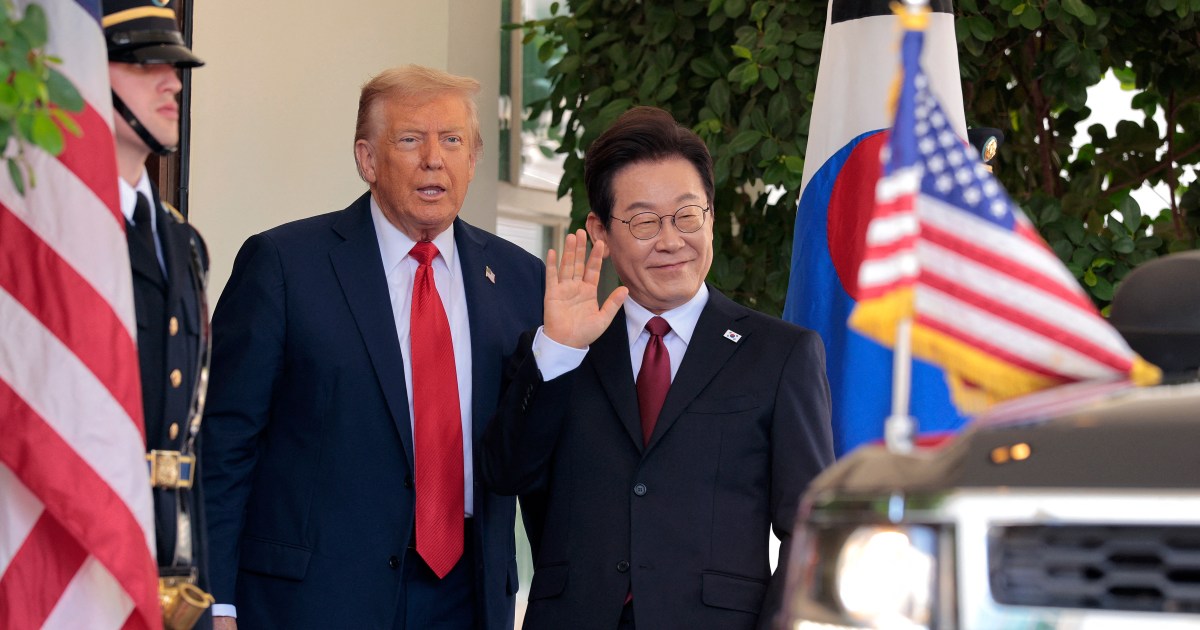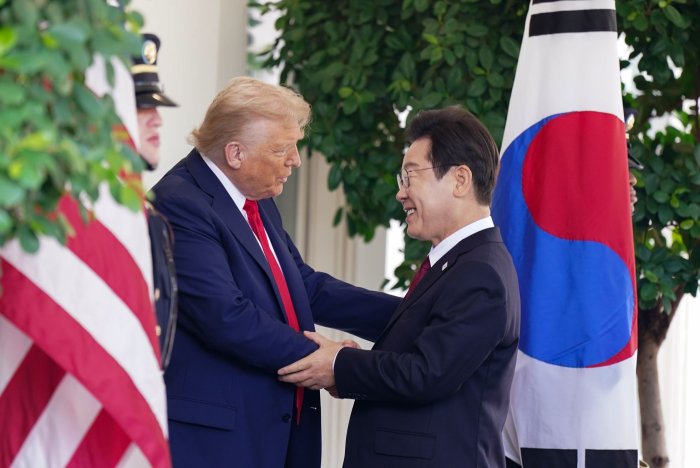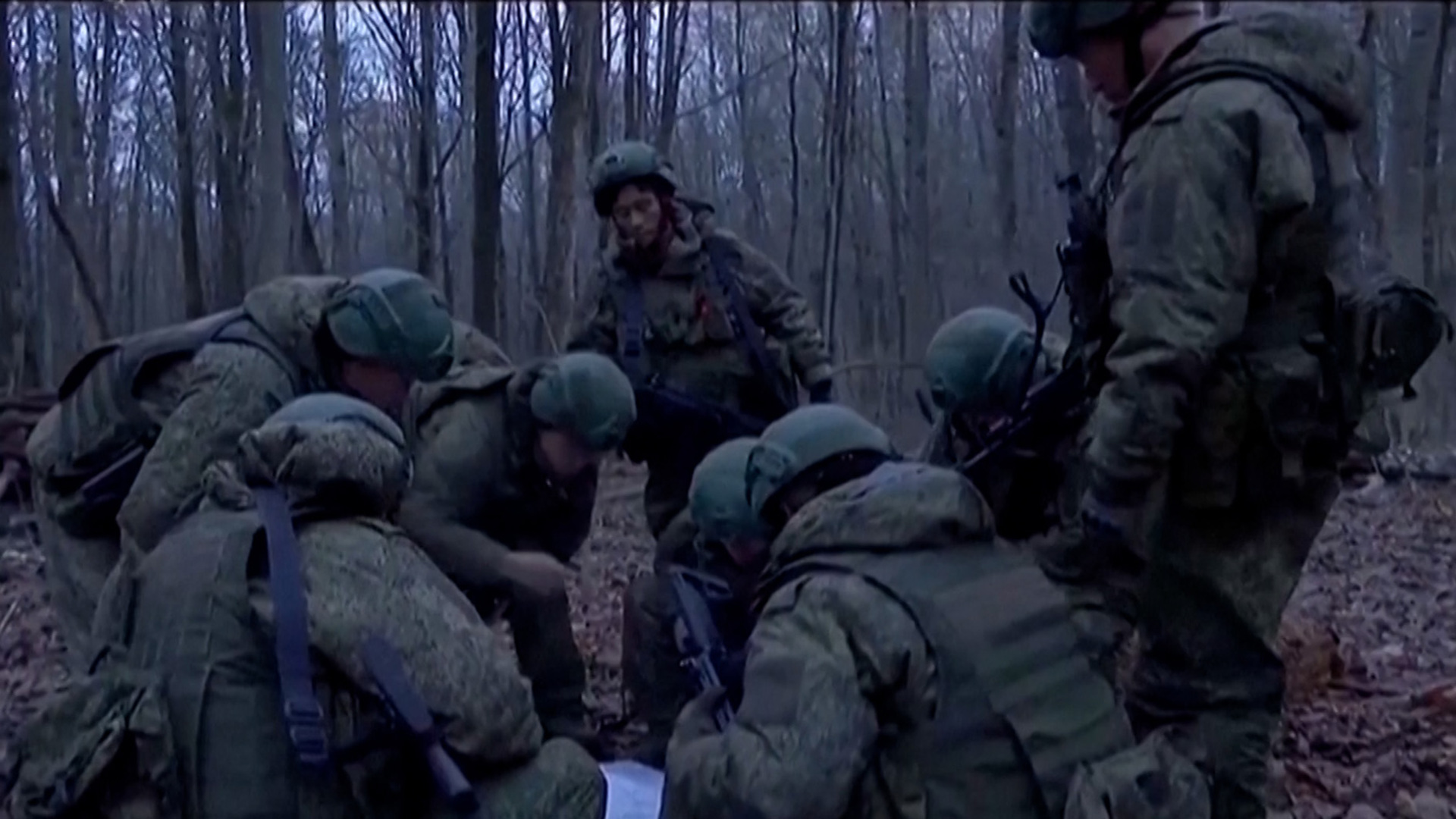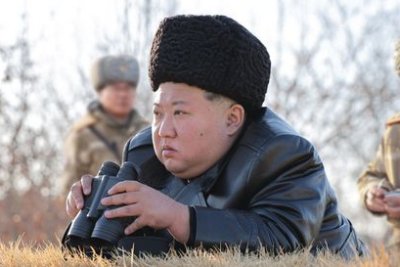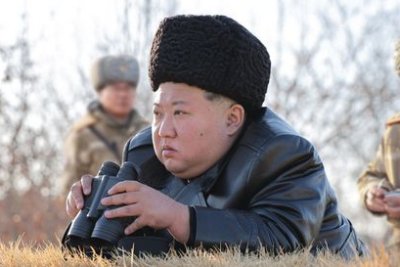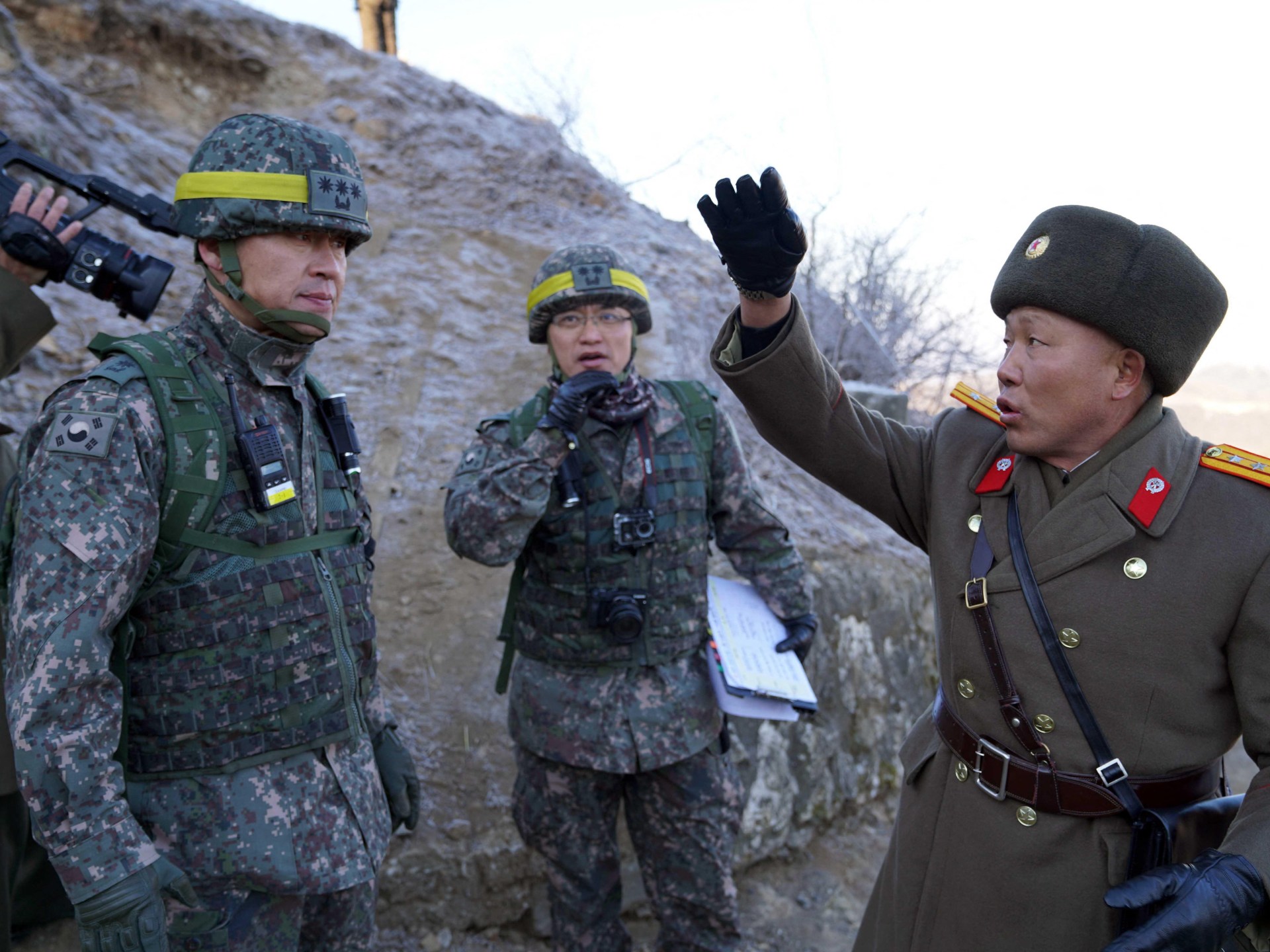Top diplomats of North Korea, China agree to oppose ‘hegemonism’
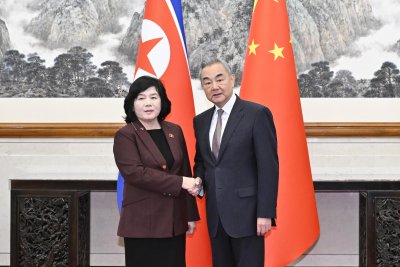
Chinese Foreign Minister Wang Yi (R) met with North Korean Foreign Minister Choe Son Hui in Beijing on Sunday. Both sides agreed to oppose “hegemonism,” China’s Foreign Ministry said in a readout released Monday. Photo by Yue Yuewei/Xinhua/EPA
SEOUL, Sept. 29 (UPI) — The top diplomats of North Korea and China met in Beijing and agreed to develop bilateral ties while resisting “hegemonism” and “unilateralism,” both countries said Monday.
The first one-on-one meeting between North Korean Foreign Minister Choe Son Hui and her Chinese counterpart, Wang Yi, took place on Sunday.
“China is ready to strengthen coordination and cooperation with the DPRK in international and regional affairs, oppose all forms of hegemonism, and safeguard the common interests of both sides and international fairness and justice,” Wang said, according to a readout by China’s Ministry of Foreign Affairs.
The Democratic People’s Republic of Korea is the official name of North Korea.
“The current international landscape is marked by changes and turbulence, and power politics and bullying acts cause grave harm,” Wang added.
The remarks appear to be directed at the United States, with whom China is locked in a global economic and military competition. North Korea, meanwhile, has long characterized Washington as a hostile, hegemonic power seeking to dominate the Korean Peninsula.
The ministry’s readout quoted Choe as saying that the North is “willing to closely cooperate with China in multilateral affairs, jointly resist unilateralism and power politics, and promote a fairer and more just world order.”
The meeting comes less than a month after North Korean leader Kim Jong Un traveled to Beijing to attend a military parade commemorating the 80th anniversary of the end of World War II, where he held his first summit with Xi in six years.
The relationship between the two longtime allies has shown signs of warming after widespread speculation of a rift over Pyongyang’s growing military alignment with Moscow.
North Korea’s state-run Korean Central News Agency said that Wang and Choe reached a “complete consensus” in their discussions on regional and international issues.
Choe relayed a message from Kim Jong Un, who said that “the friendship between North Korea and China remains unchangeable” and that further strengthening ties between Beijing and Pyongyang was the North’s “unwavering position.”
Interest has been swirling over what sort of delegation China will send to North Korea for the 80th anniversary of the founding of its ruling Workers’ Party of Korea on Oct. 10.
Satellite imagery analyzed by Seoul-based SI Analytics shows that the North is preparing for its largest-ever military parade to mark the occasion. In a report released last week, analysts said that new weapons will likely be unveiled, including the Hwasong-20 intercontinental ballistic missile, cruise missiles, tanks and AI-enabled attack drones.
Russia has already announced that its second-in-command, Dmitry Medvedev, will attend. It is unclear whether Xi himself will make his first visit to North Korea since 2019.

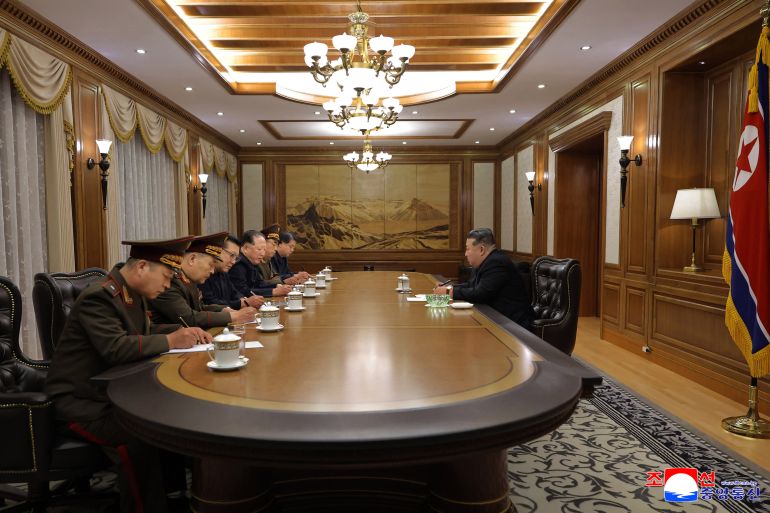

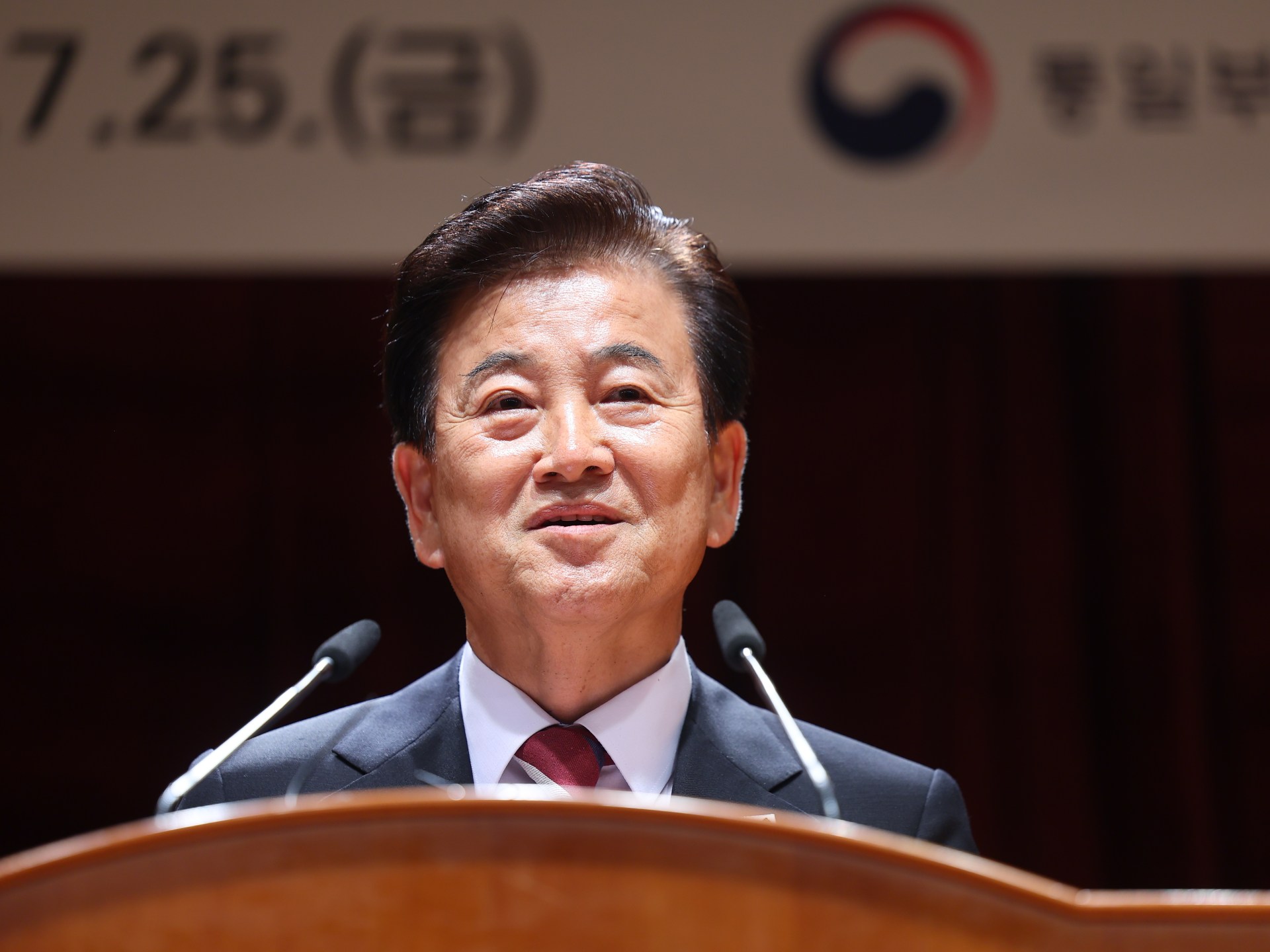
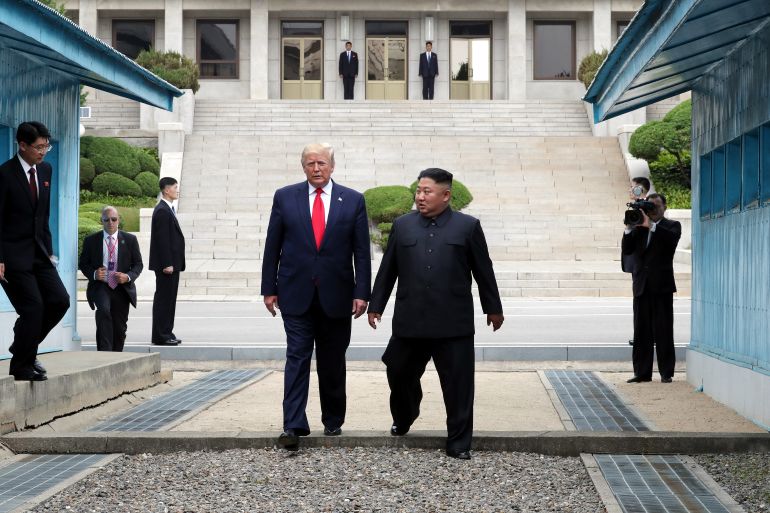

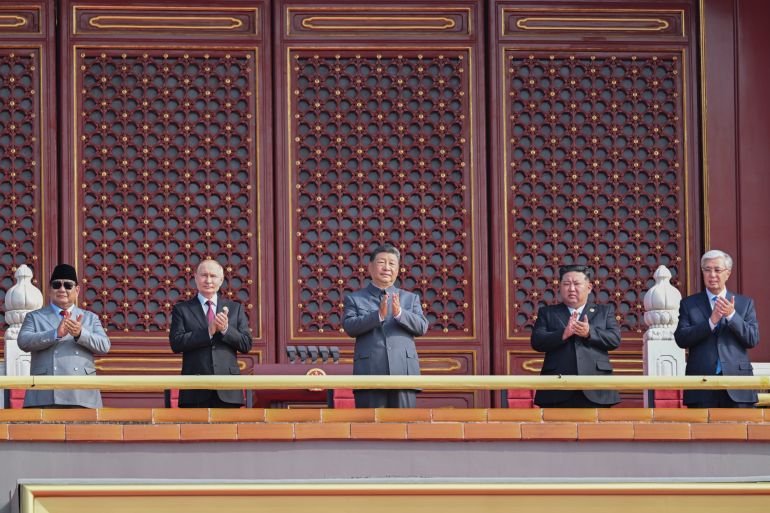
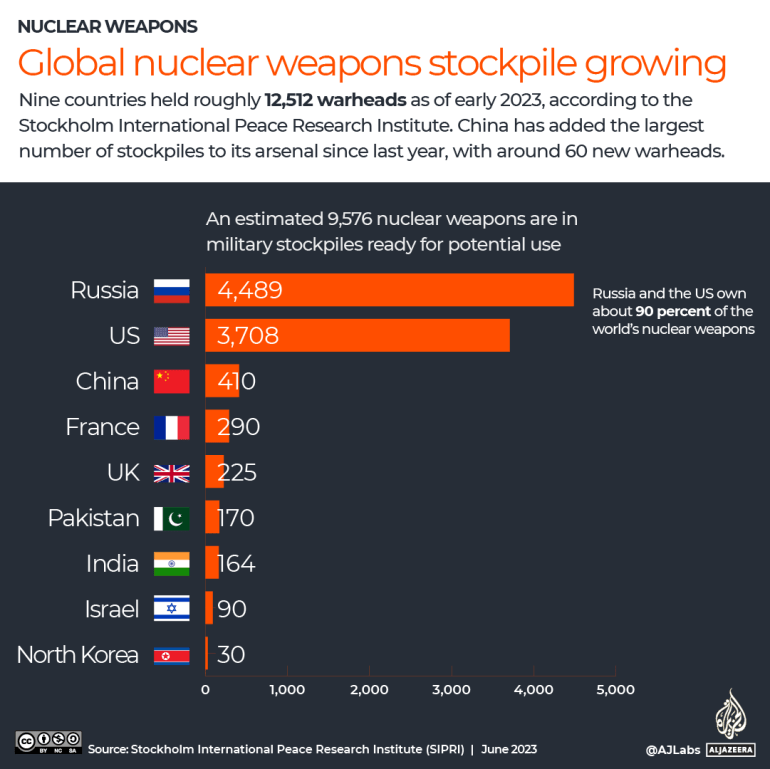
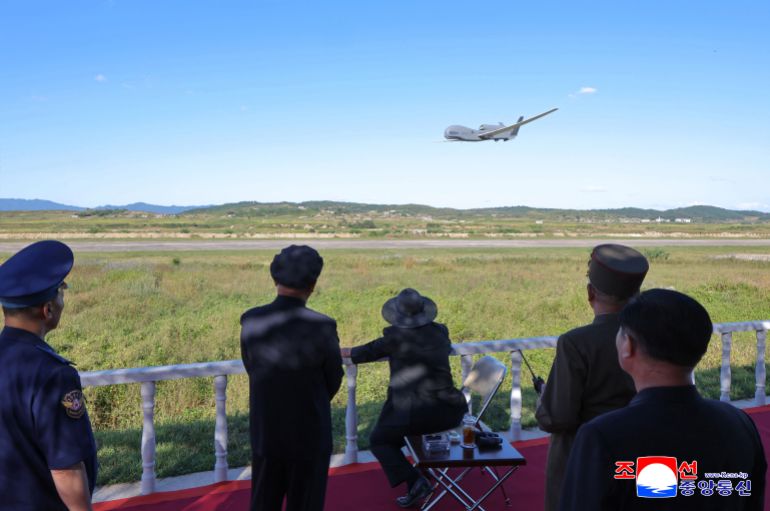

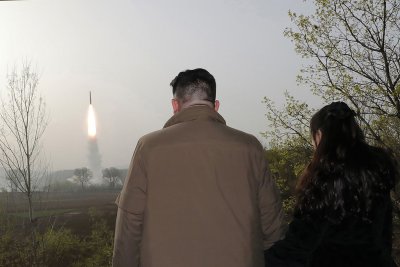

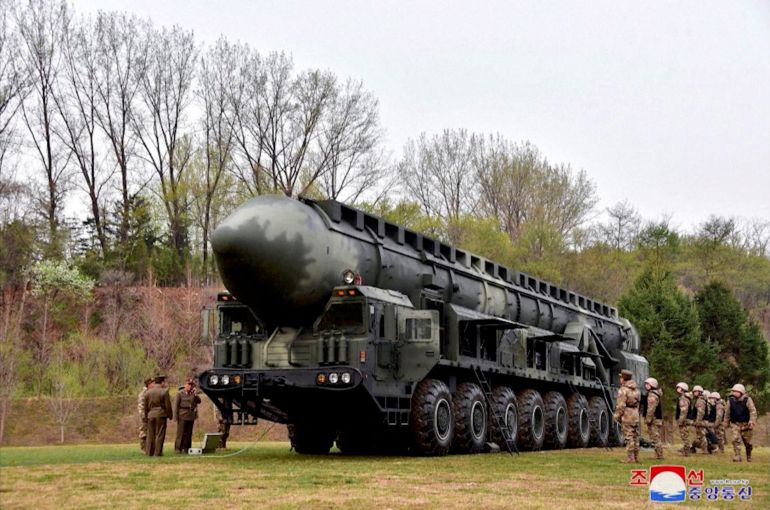

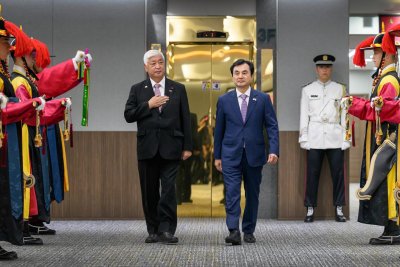

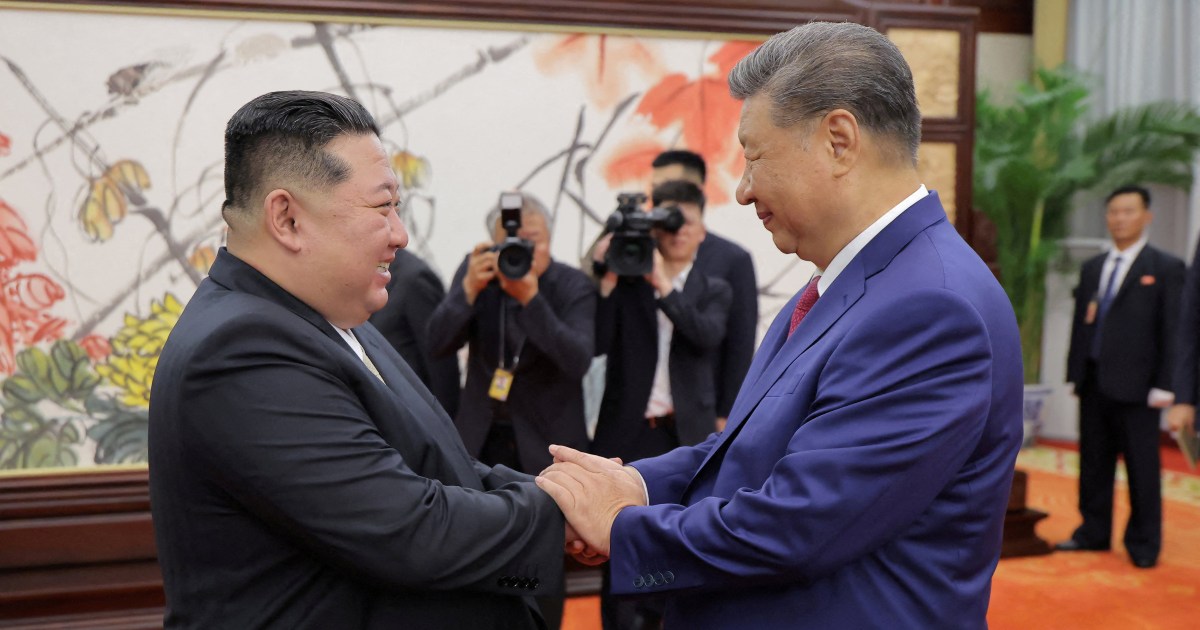
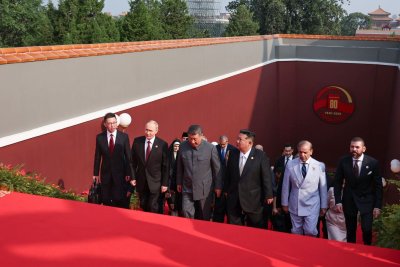


![Members of Chinese People's Liberation Army (PLA) Air Force march during a military parade to mark the 80th anniversary of the end of World War Two, in Beijing, China, September 3, 2025. [Maxim Shemetov/REUTERS]](https://www.aljazeera.com/wp-content/uploads/2025/09/2025-09-03T015825Z_191172246_RC21KGAXLXGI_RTRMADP_3_WW2-ANNIVERSARY-CHINA-1756867370.jpg?w=770&resize=770%2C514&quality=80)

